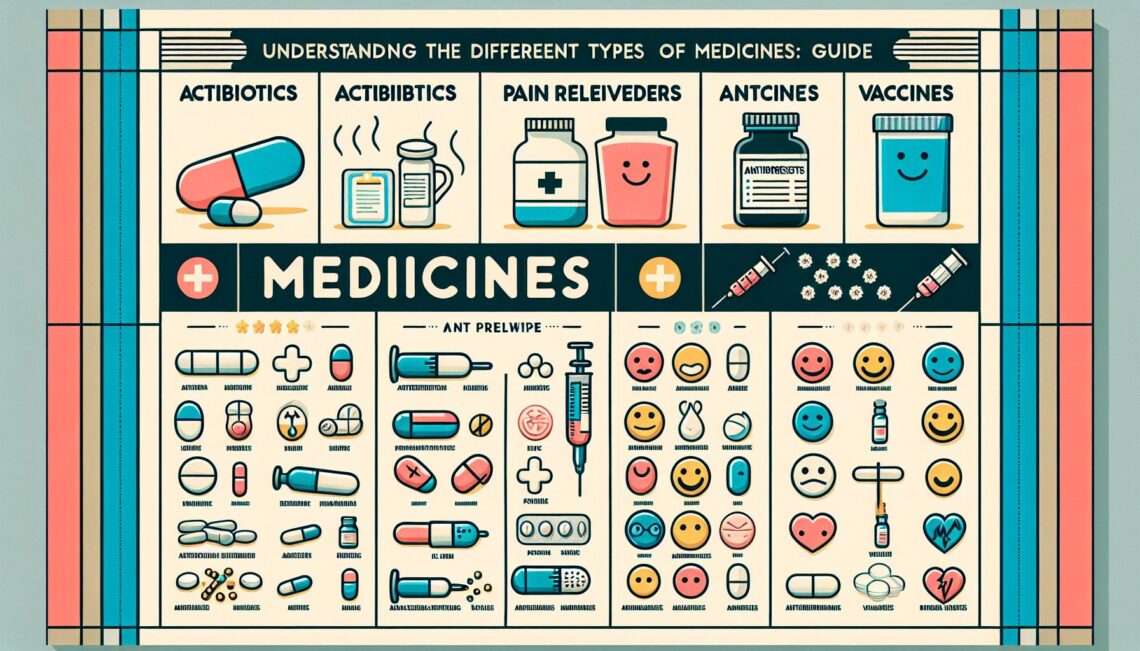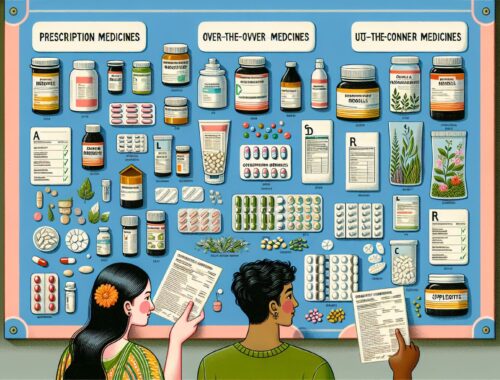
Understanding the Different Types of Medicines: A Guide
Medicine plays a vital role in our lives, helping us combat various illnesses and improving our overall well-being. From relieving pain to curing complex diseases, a wide range of medicines are available to address our health concerns. However, navigating the vast array of medications can be overwhelming. In this article, we will explore the different types of medicines and their uses, assisting you in understanding how they work and how they can benefit you.
1. Over-the-Counter (OTC) Medicines
These medicines are easily accessible without a prescription and can be purchased directly from a pharmacy or even some grocery stores. OTC medications, such as pain relievers like acetaminophen or ibuprofen, are commonly used for minor health issues like headaches, cold symptoms, or allergies. While these remedies are generally safe, it is essential to read and follow the instructions carefully to avoid any adverse effects.
2. Prescription Medicines
Prescription medicines require a valid prescription from a qualified healthcare professional, such as a doctor or pharmacist. These medications are often more potent and formulated to treat specific medical conditions. Antibiotics, antidepressants, and medications for chronic illnesses fall into this category. Prescription medicines need to be carefully monitored, as they may have potential side effects or drug interactions that could harm the patient. Always follow the prescribed dosage and schedule to ensure maximum safety and effectiveness.
3. Complementary and Alternative Medicines
Complementary and alternative medicines encompass various approaches outside of conventional medical practices. These may include herbal remedies, homeopathy, acupuncture, or traditional practices from different cultures. While some people prefer these treatments due to cultural, personal, or philosophical reasons, it is crucial to consult a healthcare professional before incorporating these methods. While these medicines might offer benefits, they can also have limitations or interact with other medications.
4. Vaccines
Vaccines are essential tools for preventing various infectious diseases. Administered through injections or oral doses, vaccines help our bodies develop immunity to specific pathogens. They enhance our immune system’s ability to recognize and fight off harmful bacteria or viruses. Common vaccines include those for influenza, polio, measles, and hepatitis. Vaccination not only protects individuals but also plays a critical role in preventing the spread of diseases within communities.
5. Emergency Medicines
Emergency medicines are used to treat severe, life-threatening conditions or sudden health crises. These often include drugs such as epinephrine for severe allergic reactions, naloxone for opioid overdoses, or nitroglycerin for chest pain related to heart conditions. Accessible to qualified professionals, emergency medicines require specialized knowledge for administration. It is crucial to seek immediate medical help in emergency situations rather than attempting self-medication.
In conclusion, understanding the different types of medicines is essential for making informed decisions about our healthcare. Over-the-counter medicines address minor health concerns, while prescription medicines target specific medical conditions. Complementary and alternative medicines and vaccines provide additional options for treatment and prevention. In emergencies, quick access to appropriate emergency medicines can be life-saving. Remember, it is always wise to consult with healthcare professionals for appropriate guidance on medication usage and potential side effects. By being well-informed, we can responsibly manage our health and well-being.
You May Also Like

Exploring the Various Types of Medicines
March 26, 2024
Understanding the Different Types of Medicines
January 22, 2024

